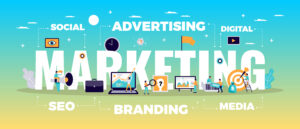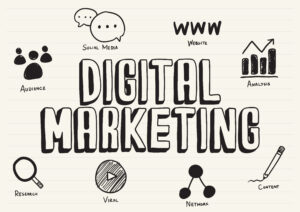What makes people click, buy, or stay loyal to a brand in 2025? The answer isn’t just in data or algorithms — it’s in the mind. Understanding consumer psychology has become the new superpower for every marketer. Whether you’re a startup or a digital marketing company in Bangalore, decoding human behavior is what truly drives growth in the digital era.
The Shift: From Numbers to Neuroscience
Digital marketing used to revolve around metrics — clicks, impressions, and conversions. But as technology advances, businesses are realizing that behind every data point is a human emotion. According to a Harvard Business Review study, emotional connections are more predictive of brand loyalty than customer satisfaction. In simple terms, it’s not just what you sell, but how you make people feel that matters.
The 2025 Marketing Mindset
In 2025, successful digital marketing isn’t about louder ads or trendier hashtags — it’s about psychological resonance. Businesses that appeal to the subconscious triggers of trust, curiosity, and belonging will win. Think of Apple’s simplicity, Nike’s motivation, or Airbnb’s sense of adventure. They sell emotions, not just products.
Key Psychological Drivers Behind Digital Marketing Success
1. Trust Through Transparency
Consumers are more skeptical than ever. With AI-generated content flooding the web, transparency is the ultimate trust-builder. Brands that show authenticity — through behind-the-scenes stories, social proof, and ethical communication — create emotional credibility.
- Show real people: Replace stock photos with real employees or customers.
- Be honest about your process: Consumers value “real” more than “perfect.”
- Highlight testimonials: According to Nielsen, 92% of people trust recommendations from peers over ads.
2. The Power of Personalization
AI-driven personalization has turned marketing into a one-to-one experience. But it’s not just about algorithms — it’s about empathy. Tailoring content to match user intent and emotion increases engagement significantly. A personalized email or ad feels like a conversation, not a pitch.
3. Emotional Storytelling and Visual Appeal
Storytelling taps into memory and emotion, two powerful decision-making drivers. Combine that with psychology-backed visuals — colors, faces, and motion — and you create instant resonance. That’s why even a best PPC agency in Kolkata now integrates design psychology into every campaign. They understand that humans don’t buy products; they buy stories that reflect themselves.
Psychological Tactics Dominating 2025’s Digital Landscape
- Reciprocity: Offer value first — free resources, tips, or insights — and people are more likely to engage later.
- FOMO (Fear of Missing Out): Limited-time offers still trigger action because exclusivity feels rewarding.
- Social Proof: User-generated content and influencer collaborations remain the top trust signals.
- Neuromarketing: Brands are using brain science to analyze attention and emotional responses to digital content.
How to Apply Marketing Psychology for Growth
- Understand your audience deeply: Go beyond demographics — know their fears, goals, and motivations.
- Design for emotion, not logic: Make users feel something before you make them think something.
- Test psychological cues: Try curiosity-based headlines, scarcity-driven offers, or trust-centric visuals.
- Work with experts: Partner with a digital marketing services in India provider that understands the balance between analytics and empathy.
The Rise of Cognitive Analytics
2025 marks a shift toward cognitive analytics — understanding not just what users do, but why they do it. Platforms are integrating behavioral prediction models to anticipate consumer intent before they even act. This evolution blends neuroscience with marketing strategy, creating smarter and more human campaigns.
Example: Emotionally Intelligent Ads
Imagine an ad that changes tone based on your mood. That’s not science fiction — it’s adaptive advertising. Global brands are experimenting with AI that reads facial expressions or voice tone to adjust ad delivery, creating truly personalized experiences.
FAQs
1. Why is psychology important in digital marketing?
Because marketing is ultimately about influencing behavior. Understanding psychological triggers helps brands craft campaigns that connect emotionally and drive conversions.
2. What are the biggest psychological trends in 2025?
Emotional personalization, ethical transparency, and neuromarketing are leading trends that focus on building genuine human connections online.
3. How can small businesses use marketing psychology?
By applying simple tactics — authentic storytelling, customer empathy, and personalized experiences — even small brands can build emotional loyalty.
4. What tools help analyze consumer psychology?
AI tools like Google Analytics 4, Hotjar, and behavioral heatmaps reveal how users think and feel as they interact with your content.
Also Read : Data-Driven Digital Strategy for a Successful Traveling Business
Final Thoughts
In 2025, data drives decisions, but psychology drives growth. The brands that understand the mind behind the click — the emotion behind the conversion — will lead the digital revolution. Remember: people don’t just buy what you sell; they buy why you sell it.
Blog Development Credits:
This article was conceptualized by Amlan Maiti, developed and written using cutting-edge AI tools like ChatGPT, Google Gemini, and Copilot. Final SEO optimization and publishing oversight were handled by Digital Piloto Private Limited.





